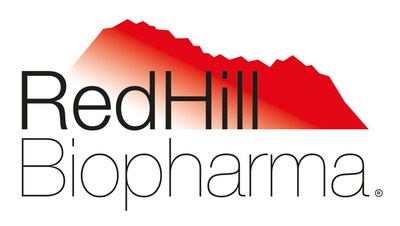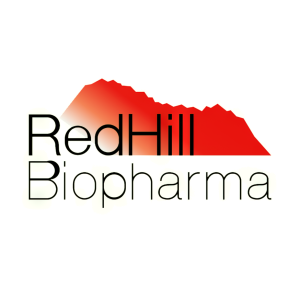RedHill Announces a New Patent Covering Opaganib in Combination with Immune Checkpoint Inhibitors, Valid Through 2040
RedHill Biopharma announced a new Chinese patent that covers the use of opaganib in combination with immune checkpoint inhibitors (ICIs) to induce an anti-cancer immune response, valid until 2040. This patent, issued by the Chinese National Intellectual Property Administration, reinforces opaganib's potential across various approved and in-development ICIs for a growing number of indications. ICIs, pivotal in cancer treatment, are projected to contribute to a global market exceeding $100 billion by 2028. Opaganib, an oral small molecule with proven safety and efficacy, is also in development for COVID-19, Ebola, and other conditions.
- New Chinese patent for opaganib in combination with ICIs valid through 2040.
- Patent provides protection for opaganib's potential use across a range of approved and in-development ICIs.
- Global ICI market expected to exceed $100 billion by 2028.
- Opaganib demonstrated safety and efficacy in multiple indications including oncology, viral, and inflammatory diseases.
- Issued by the Chinese National Intellectual Property Administration, reinforcing opaganib's strong patent portfolio.
- The announcement lacks immediate financial data or revenue impacts.
- No specific clinical trial results or timelines provided for opaganib's development with ICIs.
- Potential reliance on the success of ICIs market projections, which can be uncertain.
- Absence of information on the commercialization strategy or partnerships.
Insights
The combination of opaganib with immune checkpoint inhibitors (ICIs) signifies a potential breakthrough in cancer treatment. ICIs are a class of drugs that help the immune system recognize and attack cancer cells and they have become a cornerstone in cancer therapy. By integrating opaganib, a small molecule with a demonstrated safety and efficacy profile, the therapeutic potential of ICIs could be enhanced, leading to better patient outcomes.
For retail investors, this development could mean an increased valuation of RedHill Biopharma due to the expansive protection offered by the new patent in China, which could safeguard the commercial viability of their product in a burgeoning market. It is important to note that China is a significant player in adopting ICI-based therapies, potentially accelerating the adoption of this combination treatment. This offers a strategic advantage as it may lead to rapid market penetration and adoption, which is a positive signal for stakeholders.
From a financial perspective, the issuance of a new patent in China represents a strategic win for RedHill Biopharma. The patent validity until 2040 secures a long-term competitive edge in leveraging opaganib with ICIs. Given the projected
The patent coverage in China is particularly critical as it is one of the largest markets for cancer therapeutics. This protection may also attract potential partnerships or licensing deals, which could offer additional revenue through upfront payments, milestones and royalties. For retail investors, such deals could mean increased financial stability and potential dividends. However, the financial benefits will be contingent on successful clinical trials and regulatory approvals, which are inherently risky and uncertain.
New Chinese patent notice of allowance issued covering opaganib in combination with immune checkpoint inhibitors (ICIs) as a method of inducing an anti-cancer immune response[1]. Provides protection for opaganib's potential use in combination with a range of approved and in-development (ICIs) across a growing range of indications[2] through 2040
ICIs have become a cornerstone in cancer treatment, having been hailed as a major breakthrough by oncologists, with the global ICI market expected to exceed
Opaganib, a host-directed and potentially broad acting twice-daily oral, small molecule with a demonstrated safety & efficacy profile, is in development for multiple oncology, viral and inflammatory indications, including COVID-19, Ebola, acute respiratory distress syndrome (ARDS) and two

"ICIs have become a cornerstone in cancer treatment, having been hailed as a major breakthrough by oncologists, with the global ICI market expected to exceed
About Opaganib (ABC294640)
Opaganib, a proprietary investigational host-directed and potentially broad-acting drug, is a first-in-class, orally administered sphingosine kinase-2 (SPHK2) selective inhibitor with anticancer, anti-inflammatory and antiviral activity, targeting multiple potential diseases, including prostate cancer and cholangiocarcinoma (bile duct cancer), gastrointestinal acute radiation syndrome (GI-ARS), Sulfur Mustard exposure, COVID-19, Ebola and other viruses as part of pandemic preparedness.
Opaganib's host-directed action is thought to work through the inhibition of multiple pathways, the induction of autophagy and apoptosis, and disruption of viral replication, through simultaneous inhibition of three sphingolipid-metabolizing enzymes in human cells (SPHK2, DES1 and GCS).
Opaganib has been selected for evaluation by two
Opaganib has demonstrated antiviral activity against SARS-CoV-2, multiple variants, and several other viruses, such as Influenza A and Ebola. Opaganib delivered a statistically significant increase in survival time when given at 150 mg/kg twice a day (BID) in a United States Army Medical Research Institute of Infectious Diseases (USAMRIID) in vivo Ebola virus study, making it the first host-directed molecule to show activity in Ebola virus disease. Opaganib also recently demonstrated a distinct synergistic effect when combined individually with remdesivir (Veklury®, Gilead Sciences Inc.), significantly improving potency while maintaining cell viability, in a
Being host-targeted, and based on data accumulated to date, opaganib is expected to maintain effect against emerging viral variants. In prespecified analyses of Phase 2/3 clinical data in hospitalized patients with moderate to severe COVID-19, oral opaganib demonstrated improved viral RNA clearance, faster time to recovery and significant mortality reduction in key patient subpopulations versus placebo on top of standard of care. Opaganib has demonstrated its safety and tolerability profile in more than 470 people in multiple clinical studies and expanded access use. Data from the opaganib global Phase 2/3 study was published in medRxiv.
Opaganib has received Orphan Drug designation from the FDA for the treatment of cholangiocarcinoma and has undergone studies in advanced cholangiocarcinoma (Phase 2a) and prostate cancer. Opaganib also has a Phase 1 chemoradiotherapy study protocol ready for FDA-IND submission.
Opaganib has also shown positive preclinical results in renal fibrosis, and has the potential to target multiple oncology, radioprotection, viral, inflammatory, and gastrointestinal indications.
About RedHill Biopharma
RedHill Biopharma Ltd. (Nasdaq: RDHL) is a specialty biopharmaceutical company primarily focused on gastrointestinal and infectious diseases. RedHill promotes the gastrointestinal drugs Talicia®, for the treatment of Helicobacter pylori (H. pylori) infection in adults[6], and Aemcolo®, for the treatment of travelers' diarrhea in adults[7]. RedHill's key clinical late-stage development programs include: (i) opaganib (ABC294640), a first-in-class oral broad-acting, host-directed SPHK2 selective inhibitor with potential for pandemic preparedness, targeting multiple indications with
More information about the Company is available at www.redhillbio.com / twitter.com/RedHillBio.
Forward Looking Statements
This press release contains "forward-looking statements" within the meaning of the Private Securities Litigation Reform Act of 1995 and may discuss investment opportunities, stock analysis, financial performance, investor relations, and market trends. Such statements, including, but not limited to, statements regarding the intended use of net proceeds from the offering, may be preceded by the words "intends," "may," "will," "plans," "expects," "anticipates," "projects," "predicts," "estimates," "aims," "believes," "hopes," "potential" or similar words and include statements regarding the risk that the Company will not comply with the listing requirements of the Nasdaq Capital Market ("Nasdaq") to remain listed for trading on Nasdaq, the addition of new revenue generating products, out-licensing of the Company's development pipeline assets, timing of opaganib's development for Acute Radiation Syndrome, non-dilutive development funding from RHB-107 and its inclusion in a key platform study. Forward-looking statements are based on certain assumptions and are subject to various known and unknown risks and uncertainties, many of which are beyond the Company's control and cannot be predicted or quantified, and consequently, actual results may differ materially from those expressed or implied by such forward-looking statements. Such risks and uncertainties include, without limitation, market and other conditions, the risk that the addition of new revenue generating products or out-licensing transactions will not occur; the risk that acceptance onto the RNCP Product Development Pipeline will not guarantee ongoing development or that any such development will not be completed or successful; the risk that the FDA does not agree with the Company's proposed development plans for opaganib for any indication, the risk that observations from preclinical studies are not indicative or predictive of results in clinical trials; the risk that the FDA pre-study requirements will not be met and/or that the Phase 3 study of RHB-107 in COVID-19 outpatients will not be approved to commence or if approved, will not be completed or, should that be the case, that we will not be successful in obtaining alternative non-dilutive development funding for RHB-107, the risk that HB-107's late-stage development for non-hospitalized COVID-19 will not benefit from the resources redirected from the terminated RHB-204 Phase 3 study, that the Phase 2/3 COVID-19 study for RHB-107 may not be successful and, even if successful, such studies and results may not be sufficient for regulatory applications, including emergency use or marketing applications, and that additional COVID-19 studies for opaganib and RHB-107 are likely to be required, as well as risks and uncertainties associated with the risk that the Company will not successfully commercialize its products; as well as risks and uncertainties associated with (i) the initiation, timing, progress and results of the Company's research, manufacturing, pre-clinical studies, clinical trials, and other therapeutic candidate development efforts, and the timing of the commercial launch of its commercial products and ones it may acquire or develop in the future; (ii) the Company's ability to advance its therapeutic candidates into clinical trials or to successfully complete its pre-clinical studies or clinical trials or the development of a commercial companion diagnostic for the detection of MAP; (iii) the extent and number and type of additional studies that the Company may be required to conduct and the Company's receipt of regulatory approvals for its therapeutic candidates, and the timing of other regulatory filings, approvals and feedback; (iv) the manufacturing, clinical development, commercialization, and market acceptance of the Company's therapeutic candidates and Talicia®; (v) the Company's ability to successfully commercialize and promote Talicia® and Aemcolo®; (vi) the Company's ability to establish and maintain corporate collaborations; (vii) the Company's ability to acquire products approved for marketing in the
Company contact: Adi Frish Chief Corporate & Business Development Officer RedHill Biopharma +972-54-6543-112 |
Category: R&D
Logo: https://mma.prnewswire.com/media/1334141/RedHill_Biopharma_Logo.jpg
[1] The allowed claims cover a pharmaceutical composition comprising opaganib and immune checkpoint inhibitors anti-PD-L1 antibody, an anti-PD-1 antibody, and/or an anti-CTLA4 antibody, the combination of opaganib and anti-PD1/anti-PDL1 for treatment of melanoma; combination of opaganib and anti-CTL4 for treatment of lung cancer.
[2] Jin Y, Li H, Zhang P, Yu M, Zhang H, Li X. The regulatory approvals of immune checkpoint inhibitors in
[3] GlobalData: Thematic Intelligence: Immuno-oncology (2023). Report Code: GDHCHT393, May 2023
[4] Opaganib is an investigational new drug, not available for commercial distribution.
[5] Jin Y, Li H, Zhang P, Yu M, Zhang H, Li X. The regulatory approvals of immune checkpoint inhibitors in
[6] Talicia® (omeprazole magnesium, amoxicillin and rifabutin) is indicated for the treatment of H. pylori infection in adults. For full prescribing information see: www.Talicia.com.
[7] Aemcolo® (rifamycin) is indicated for the treatment of travelers' diarrhea caused by noninvasive strains of Escherichia coli in adults. For full prescribing information see: www.Aemcolo.com.
![]() View original content:https://www.prnewswire.com/news-releases/redhill-announces-a-new-patent-covering-opaganib-in-combination-with-immune-checkpoint-inhibitors-valid-through-2040-302161731.html
View original content:https://www.prnewswire.com/news-releases/redhill-announces-a-new-patent-covering-opaganib-in-combination-with-immune-checkpoint-inhibitors-valid-through-2040-302161731.html
SOURCE RedHill Biopharma Ltd.







